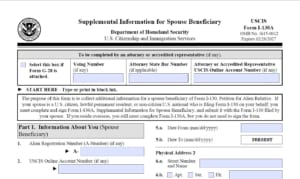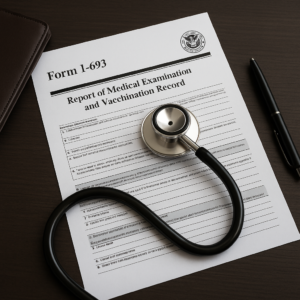A Lawful Permanent Resident (“LPR”) or “Green Card Holder” can become a U.S. citizen through naturalization if they generally meet certain requirements.
- LPR Status/ Green Card Holder Status. You must be an LPR/ Green Card Holder at the time of filing for naturalization. You must have also maintained their LPR/ Green Card Holder status without any prolonged trips outside the United States which could disrupt residency.
- Age Requirement. Generally, you must be at least 18 years of age at the time of filing for naturalization.
- Continuous Residency. You must have continuously resided in the United States as an LPR/ Green Card Holder for a specified period of time. Certain exceptions such as being the spouse of a U.S. citizen regularly stationed abroad may apply.
- Good Moral Character. You must demonstrate good moral character during your LPR/ Green Card Holder residency period. You should not have committed any crimes or engaged in other actions that may have negatively impacted your moral character.
- English Language Proficiency. You must be able to read, write and speak basic English.
- Knowledge of U.S. Government and History. You will be required to take a civics exam as part of your naturalization interview. The civics exam will test your knowledge on basic U.S. government and history.
- Attachment to the Constitution. You must be willing to support and defend the Constitution and be willing to take up arms in defense of the Constitution.
- Oath of Allegiance. You must take an oath of allegiance to the United States during the naturalization ceremony.
For more information, contact us at info@enterlinepartners.com and speak with a U.S. immigration attorney in Ho Chi Minh City, Manila, and Taipei.
ENTERLINE & PARTNERS CONSULTING
Ho Chi Minh City, Vietnam Office
Suite 601, 6th Floor, Saigon Tower
29 Le Duan Street
Ben Nghe Ward, District 1
Ho Chi Minh City, Vietnam
Tel: +84 933 301 488
Email: info@enterlinepartners.com
Facebook: Enterline & Partners – Dịch vụ Thị thực và Định cư Hoa Kỳ
YouTube: @EnterlineAndPartnersConsulting
Website: http://enterlinepartners.com
Manila, Philippines Office
Tel: +63 917 543 7926
Email: info@enterlinepartners.com
Facebook: Enterline and Partners Philippines
Website: https://enterlinepartners.com/language/en/welcome/
Copyright 2023. This article is for information purposes only and does not constitute legal advice. This article may be changed with or without notice. The opinions expressed in this article are those of Enterline and Partners only.








